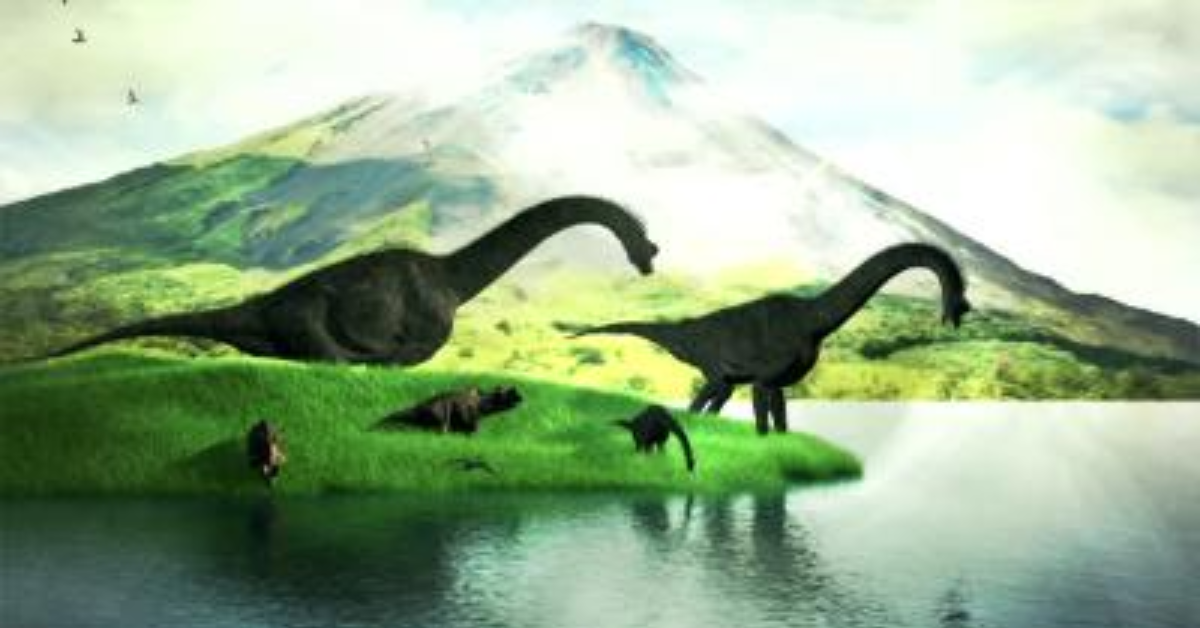The Hypothetical Scenario: What If the Asteroid Didn't Wipe Out the Dinosaurs?
Explore the intriguing 'what if' scenario of a world where the catastrophic asteroid never struck, leaving the dinosaurs to continue their reign. Delve into the alternate Earth where the giant reptiles still roam, and learn how this hypothetical scenario could have reshaped the evolutionary timeline, biodiversity, and ecological dynamics. Get ready for an in-depth journey into the fascinating world of dinosaur survival.

In the annals of Earth's history, few events rival the cataclysmic asteroid impact that triggered the mass extinction of the dinosaurs, among many other species. However, the age-old question of "What if the asteroid didn't wipe out the dinosaurs?" has tantalized our imaginations for decades. This intriguing 'what if' scenario takes us on a journey into a world where the giants of the Mesozoic era still roam the Earth. Let's explore this hypothetical scenario in detail and uncover the secrets of a dinosaur-dominated world.
The Pivotal Asteroid Impact
Before we dive into the world where the asteroid never struck, we must understand the significance of the event that shaped Earth's history. Approximately 66 million years ago, a massive asteroid, estimated to be around 10 kilometers in diameter, hurtled towards our planet. Upon impact, it unleashed unimaginable devastation, leading to the mass extinction of over 75% of Earth's species, including the non-avian dinosaurs.
The aftermath of this catastrophic event created an ecological vacuum, allowing new life forms to evolve and fill the vacant niches left behind by the dinosaurs. Mammals, once small and inconspicuous, seized the opportunity to diversify and eventually became the dominant class of animals on Earth.
An Alternate Earth: Dinosaurs Continue to Rule
In our hypothetical scenario, the asteroid never made its fateful descent, allowing the dinosaurs to continue their reign over the planet. These magnificent creatures had already dominated Earth for over 150 million years, evolving into an astonishing array of forms, from massive, long-necked sauropods to swift and agile theropods.
In a world where the asteroid didn't strike, the dinosaurs could have continued to evolve, diversify, and potentially give rise to new forms. Some might have developed feathered adaptations and, over time, could have become more intelligent and potentially developed advanced social structures.
The Butterfly Effect on Evolution
The continued existence of dinosaurs would have had profound implications for the course of evolution on Earth. Let's explore the various aspects of life in this alternate scenario:
Ecosystem Dynamics
With the dinosaurs still reigning supreme, the balance of power within ecosystems would be vastly different. Plant species would have evolved to cope with constant herbivorous pressure, resulting in unique adaptations. Predatory dinosaurs would have diversified in their hunting strategies, shaping the evolution of their prey species.
Evolutionary Competition
The persistence of dinosaurs could have slowed down the evolution of mammals. Small, shrew-like mammals that survived alongside dinosaurs might have remained inconspicuous and underdeveloped, lacking the evolutionary pressure to diversify into the forms we recognize today.
Avian Evolution
The possibility of intelligent, avian-like dinosaurs is particularly intriguing. These species might have developed complex social structures, tools, and potentially the ability to manipulate their environment in ways that parallel the development of human civilization.
Climate and Environmental Changes
The sheer numbers of dinosaurs would impact plant life and, consequently, the carbon cycle. This could lead to significant changes in atmospheric composition and climate dynamics, potentially resulting in a world that is markedly different from the one we know.
Implications for Human Existence
In a world where the asteroid didn't strike, the emergence of humans as we know them might never have occurred. The dominance of dinosaurs would have limited the ecological opportunities for mammals, potentially altering the course of mammalian evolution, including the development of primates and, ultimately, humans.
This alternative Earth could have featured intelligent, dinosaurian creatures with their own unique societies, language, and technology. The rise of human-like beings would have been a separate trajectory, unfolding on a timeline distinct from our own.
The Paleocene Era: A Glimpse into Reality
To envision this alternate Earth, we can turn to the Paleocene era, which followed the mass extinction event in our real timeline. During this period, mammals rapidly diversified to fill the vacant ecological niches, marking a critical point in mammalian evolution.
In the world where the asteroid never struck, the Paleocene would have looked significantly different. Dinosaurs would continue to evolve, shaping the landscape and ecosystems, with new species emerging to adapt to their dominance.
Conclusion: The Beauty of 'What If'
The hypothetical scenario of the asteroid not striking Earth serves as a captivating exercise in imagination. It challenges our understanding of evolution, ecological dynamics, and the intricate web of life on our planet. While we can only speculate about the specifics of this alternate Earth, it underscores the fragility and complexity of life on our own planet.
The asteroid impact, though a tragic event in many ways, opened doors for new forms of life, including mammals and ultimately, humans. Our reality is shaped by a sequence of chance events, and contemplating the 'what if' encourages us to appreciate the beauty and resilience of life in all its diverse forms on our extraordinary Earth.
As we continue to explore and understand the mysteries of our planet's past, we gain insights into the remarkable story of our world and the evolution of life in all its varied and unexpected forms. The 'what if' scenario is a testament to the extraordinary nature of life and the interconnectedness of all living things on our planet. So, while we can only imagine the world where the asteroid never struck, we can marvel at the beauty of life on our own, unique Earth.










